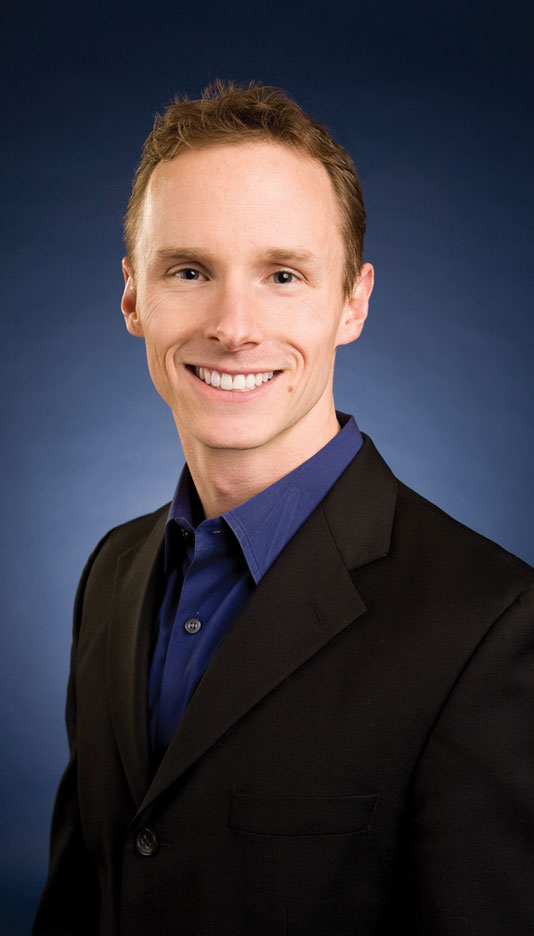“We definitely take our executives up Mount Everest,” says Scott DeRue, the new associate dean of executive education at the University of Michigan’s Ross School of Business. DeRue, who assumed the position on July 1, is only half joking.
The management professor scaled the world’s highest mountain last year and has taught an Everest simulation to business students since 2009. It’s a favorite exercise among MBAs in his course, Leading People and Organizations. (He’s also among Poets&Quants‘ “Top 40 Under 40.”)
‘HOW DO PEOPLE LEARN TO LEAD?’
DeRue uses the experience of mountaineering to teach business students about leadership and teamwork in extreme circumstances. “How do people learn to lead? By putting them through novel, challenging experiences and surrounding those experience with feedback and coaching and allowing them to integrate those experience back into their daily work,” Derue explains. Now, he’s taking the same experience to white-collar executives and large corporations.
The Everest exercise is just one small part of larger plan to push Ross’ Executive Education program from a “complement to corporate universities” to a strategic collaborator. “We are moving from education provider to true business partner,” DeRue says.
WE’VE BECOME MUCH MORE OF A COMMERCIAL SERVICES FIRM
To do this, Ross is backing away from open-enrollment courses, which are generally a one-size-fits-all public offering, and ramping up its customized programs, which are developed specifically for individual corporations. “Ten to 15 years ago, we were primarily running open programs for say 40 people from 39 different clients – now we’re designing custom solutions for clients,” DeRue says. “That has an interesting effect: We’ve become much more of a commercial services firm. We’ve become our clients’ partner to address their needs, and so there really is this shift.”
Ross is not alone. Stanford is also moving away from open courses and toward customization. However, open-enrollment programs still dominate at some top-tier institutions, like Harvard Business School, which offers 80 different open-enrollment courses.
“We’re pretty close to the opposite,” says DeRue of Ross’ offerings in comparison to HBS’ executive education portfolio. Only 30-35% of the Michigan school’s courses are open, while the remaining 65-70% are client-specific offerings. “We’re confident that’s a good mix, and it provides differentiation because we’ve developed a way of going to market to create custom solutions, so it’s not an off-the-shelf offering,” he adds. Ross does not disclose the exact number of its custom courses, but DeRue says it’s in the hundreds. They run some 20 core open-enrollment courses, he says.
A CASH COW FOR B-SCHOOLS
Executive education is a cash cow for B-schools. Ross’ open-enrollment programs run anywhere from $5,900 for a three-day course, such as Strategic Renewal and Change, to $9,700 for a five-day program, such as the Management of Managers.
Ross does not disclose pricing information for its customized programs. However, it’s generally accepted that large companies shell out millions each year for one-on-one B-school expertise. On the extreme end, London Business School won a $38 million contract in 2013 to train top managers at the Kuwait Petroleum Company, according to the Financial Times.
And research shows that the demand for customized executive education is growing. Some 41% of corporate clients responding to a Financial Times’ survey said their organizations were considering spending more on exec ed over the next three years. Moreover, 90% of corporate customers are likely to reuse the same program from the same school, according to the Times’ survey.
THE PUSH FOR CORPORATE INNOVATION COURSES
While he’s still working on the nuts and bolts of new course offerings, DeRue foresees adding more options that help companies create more robust leadership and talent pipelines, apply corporate innovation principles for strategic growth, and develop deeper customer relationships. He’s particularly enthused about corporate innovation. “We are moving very quickly in this space, and to be honest a lot of it has come from our MBA students, who have expressed interest in it,” he says. He points out that the Ross Design + Business is among the most popular clubs on campus.
However, DeRue takes pains to stipulate that Ross is not trying to bill itself as another McKinsey or Boston Consulting Group. “A consulting firm gives you a solution to a problem they identify. We want to create a talent base inside your organization so that you can develop a solution on your own,” he says.
DeRue is no doubt under pressure to capitalize on the successes of his predecessor, Professor Kim Cameron, whose three-year tenure saw a 70% increase in custom programs and a corresponding 50% increase in revenue. It’s a tough act to follow, but DeRue says he’s up to the challenge. “We have a lot of positive momentum, and our goal is to continue that progress,” he says. “I think moving toward becoming a true business partner with our clients will get us there.”
DON’T MISS: MIT Pioneers the Exec Ed Classroom of the Future or Harvard To Explore CSR Strategies






Questions about this article? Email us or leave a comment below.